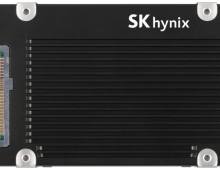
Toshiba Will No Bid For Elpida: report
Toshiba will reportedly no longer bidding for bankrupt
Japanese chip maker Elpida Memory, leaving Micron
Technology SK Hynix and Micron Technology in the race to
take over the company.
Toshiba did not participate in the second round of
bidding set for Friday after talks stalled on a joint
bid with potential partners, a source told Reuters on
Tuesday.
Toshiba has pulled out of DRAM chip-making a decade ago and has sold its U.S. DRAM facilities to Micron.
Industry sources have told Reuters that Toshiba, which was interested in Elpida's engineering and marketing expertise but reluctant to take on its assets, approached SK Hynix about a joint bid after its solo bid in the first round was too low.
By acquiring Elpida, Hynix could narrow the gap with industry leader Samsung Electronics and fend off Micron Technology. At present, Samsung hold 44 percent of the world's memory chip market, with SK hynix trailing at 23 percent.
Officially, neither SK Hynix nor Toshiba have commented on the report.
Elpida filed for creditor protection in late February with $5.6 billion in debt.
New facility in Thailand
In related news, Toshiba plans to rebuild its semiconductor manufacturing operations in Thailand by relocating Toshiba Semiconductor Thailand Co., Ltd. (TST) to a new manufacturing facility. The move will help the company to meet future growth in demand and replace the factory inundated by the 2011 floods.
Established in 1990, TST carries out back-end processes - assembly and packaging - for small signal devices and photocouplers used on smart phones and tablets PCs.
The new facility is at 15 to 20 meters above sea level and outside Thailand's main drainage basins, with no major rivers, so it offers TST advantages in the viewpoint of business continuity planning (BCP). Construction of a 2-story building will begin in July, on a lot with an area of approximately 135,000 square meters.
The plant is scheduled for completion next spring and mass production is slated to start in the second quarter (April-June) of 2013.
Last year's flooding completely inundated TST's manufacturing facilities, resulting in a forced suspension of operations.
Toshiba Group is promoting a revitalization of its discrete device business aimed at boosting efficiency and profitability. Measures deployed to date include transitioning to larger wafers and higher output in the front-end process, and accelerating the overseas transfer of the back-end process.
Toshiba has pulled out of DRAM chip-making a decade ago and has sold its U.S. DRAM facilities to Micron.
Industry sources have told Reuters that Toshiba, which was interested in Elpida's engineering and marketing expertise but reluctant to take on its assets, approached SK Hynix about a joint bid after its solo bid in the first round was too low.
By acquiring Elpida, Hynix could narrow the gap with industry leader Samsung Electronics and fend off Micron Technology. At present, Samsung hold 44 percent of the world's memory chip market, with SK hynix trailing at 23 percent.
Officially, neither SK Hynix nor Toshiba have commented on the report.
Elpida filed for creditor protection in late February with $5.6 billion in debt.
New facility in Thailand
In related news, Toshiba plans to rebuild its semiconductor manufacturing operations in Thailand by relocating Toshiba Semiconductor Thailand Co., Ltd. (TST) to a new manufacturing facility. The move will help the company to meet future growth in demand and replace the factory inundated by the 2011 floods.
Established in 1990, TST carries out back-end processes - assembly and packaging - for small signal devices and photocouplers used on smart phones and tablets PCs.
The new facility is at 15 to 20 meters above sea level and outside Thailand's main drainage basins, with no major rivers, so it offers TST advantages in the viewpoint of business continuity planning (BCP). Construction of a 2-story building will begin in July, on a lot with an area of approximately 135,000 square meters.
The plant is scheduled for completion next spring and mass production is slated to start in the second quarter (April-June) of 2013.
Last year's flooding completely inundated TST's manufacturing facilities, resulting in a forced suspension of operations.
Toshiba Group is promoting a revitalization of its discrete device business aimed at boosting efficiency and profitability. Measures deployed to date include transitioning to larger wafers and higher output in the front-end process, and accelerating the overseas transfer of the back-end process.





















